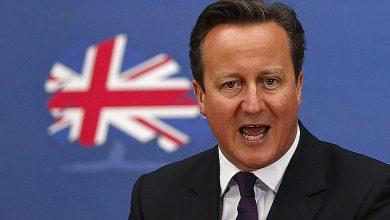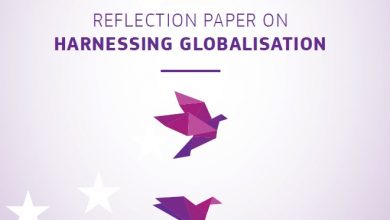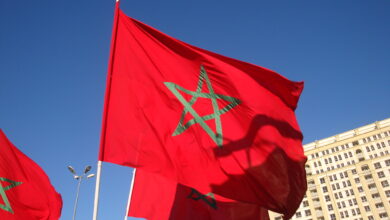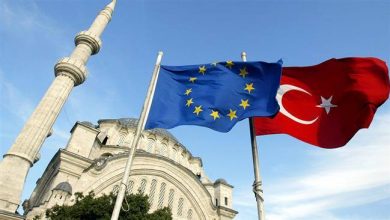The Failure of Turkey-EU Accession Talks Is Not All Turkey’s Fault

Turkey has been a candidate for EU accession for twenty years now, and the story of EU-Turkish relations is one characterised by a pendulum between warmth and hostility. The narrative of this process that one finds amongst public opinion is very crude and primitive: to some, it’s a natural consequence of Turkey’s slide into Islamic authoritarianism. To others, Turkey should have never been offered a place in a European institution in the first place.
Needless to say, the real story is a lot more complicated – and the more one looks at it, the harder it is to escape the conclusion: it’s not all Turkey’s fault.
In the 1990s, Turkey Dreams of Europe
The last decade of the 20th Century was one of turmoil and stagnation for Turkey. While the West celebrated the end of the Cold War and the affirmation of what seemed to be the liberal, democratic end of history, Turkey lived through a veritable “lost decade” of rapid inflation eating away at the country’s stop-and-go economic progress.
Violence erupted in Kurdistan, and the brutal crackdown did much to poison Turkish political debate, which became increasingly poralised. As a direct result of this polarisation, the country underwent another one of its bloodless coups in 1997, trying to find back its footing on a path of convergence with the victors of the Cold War.
It’s in the context of this coup, as well as the desire to put the turbulent 90s behind, that we must read Turkey’s determined courting of Euro-Atlantic integration at the turn of the millennium. As former Iron Curtain satellite states began their vigorous economic growth and rapidly started gravitating around Brussels and the new political order of the European continent, Turkey was caught in limbo, and the country’s political leadership was adamant that this had to be rectified.
In 1999, as the EU planned for a sweeping and ambitious redesign of its security policies and enlargement, Turkey was announced as an accession candidate, to the surprise of international commentators.
Politics, however, was not enough – the country’s economic woes also needed urgent redress. Painful economic reforms were pushed through swiftly, primarily through the adoption of an IMF package which sought to cut inflation. The measure plunged the Turkish economy into a recession during the first two years of the new millennium, but delivered on its promise: whereas the inflation rate stood ad 45% in 2002, it was spectacularly down to only 8% in 2004.
The Rise of the AKP
The political leadership of the time, however, would not stay in power long enough to enjoy the fruits of their reforms. The painful years of economic recession destroyed their popular and electoral legitimacy, and paved the way for the surprising return of Islam to the Turkish political environment.

This primarily took place through the formation of a new party, the AKP, which operated according to a complex and at times innovative vision that cemented democracy, a market economy, support for Euro-Atlantic integration, and conservative Islamic values. This heady mix of ideas succeeded because it intersected perfectly with both domestic and international developments: commitment to democracy and the West shielded the AKP from another army coup, at least for the time being. Support for conventional economic policies guaranteed that the Turkish economy would keep growing, granting the AKP popular legitimacy. The promotion of conservative, religious values allowed it to win over the middle-class voters of Anatolia.
Simultaneously, the AKP’s strategy promised both detente with the Kurds and the introduction on the world stage of a “positive” model for a developed, Islamic country, that could serve as an alternative to both Iranian fundamentalism and radical Jihadi violence. Both these factors greatly warmed Turkish-American relations, and the continued engagement between Turkey and the West made sure that foreign investment kept coming into Turkey, sustaining its rapid economic growth. The American connection, in particular, would prove crucial in the making and breaking of Turkey’s accession process.
The American Connection
Turkey’s role as the guardian of NATO’s south-eastern flank had already won it a reputation as a reliable ally of Washington in the years before the rise of the AKP. When the party completed its meteoric rise to power, it proved a much welcome boon to the American invasion of Iraq as well: Erdogan’s initially friendly and conciliatory attitude towards the Kurds made it much easier for American troops to coordinate with the Kurds living in Northern Iraq. The AKP strategy of linking Muslim conservatism with westernisation also benefited American interests in fostering a narrative of a “positive” path for Islamic countries to coexist with the West.
Bush Jr‘s strategy went beyond this. Claiming that Turkey was simultaneously part of the Muslim and the Western worlds, he saw in it the key to reconciliation and the abandonment of a confrontational narrative based on the concept of the “clash of civilisations”. In this light, the President was a strong supporter of Turkish accession in the European Union.
At a NATO summit held in Istanbul in July 2004, Bush remarked: “America believes that as a European power, Turkey belongs in the European Union. Your membership would also be a crucial advance in relations between the Muslim world and the West, because you are part of both. Including Turkey in the EU would prove that Europe is not the exclusive club of a single religion; it would expose the ‘clash of civilizations’ as a passing myth of history…”.
Europe was, on the whole, very receptive to this message. Sweden, Poland and the United Kingdom immediately endorsed it, with then-Swedish foreign minister Carl Bildt claiming that Turkish accession would give the EU the means to play a crucial role in the eastern Mediterranean and the Black Sea, greatly strengthening the south-eastern periphery of the Union. Not all were so receptive, however. Discordant voices would soon endanger Turkey’s convergence with the West, and when combined with other external factors, they would then proceed to completely torpedo it.

Broken Promises
Turkey took its commitment to Euro-Atlantic integration very seriously, at least in the early years of its work towards accession. This is the point where the narrative blaming Turkey entirely for the stall in its progress has to be reassessed: there is no doubt that Ankara was willing to do what it took to secure its EU membership.
The economic reforms have already been cited, and while the AKP benefited from the fallout of the shock-therapy, it never abandoned the IMF package – because, to put it bluntly, it worked wonders. Not only was inflation down to manageable levels, but Turks saw their first consistent improvements in living standards in over a decade. The economy skyrocketed to an annual growth exceeding 7%, and it soon overtook the EU’s poorer Member States both in GDP and in personal incomes, with great benefits to the middle and lower classes.
Political reforms were, if anything, even more ambitious. Turkey abolished the death penalty, established an independent bank regulator, liberalised those sections of the economy that had long been held hostage to local monopolies masquerading as government intervention, and overhauled its institutions to bring them closer to the West. Relations with Greece underwent a dramatically positive reset, and trade between Turkey and EU Member States grew with every passing month.
These momentous economic and political reforms mostly took place between 2002 and 2007, an astonishing rate of convergence towards the EU by any metric. Based on this effort alone, Turkish membership seemed a virtual guarantee.
The first stumbling bloc came not from Turkey itself, but sadly, from the EU. Some Member States were initially enthusiastic about Turkish accession – like Sweden and Poland, but also ironically the United Kingdom, with British leadership at the time eyeing the opportunity to strengthen the West’s ability to protect its Iraqi northern flank.
Germany and Austria, however, under the leadership of new right-wing governments, were determined to halt Turkish accession no matter the cost. Merkel’s plan, in particular, was to offer Ankara a privileged partnership as a consolation prize for failed accession. France and new entrant Cyprus soon joined the opposition, and over time it became socially acceptable in Western European countries to fan the flames of xenophobia against Turkey in exchange for immediate electoral gains.
When it became apparent to Turkish public opinion that its accession would be vetoed, support for a continuing effort of convergence virtually evaporated overnight. And this was only the beginning of Turkey’s new problems.
The Great Recession is doubtlessly the seminal event of contemporary world politics, and it hit Turkey hard, causing its economy to contract by 14% over a single month. This, combined with Erdogan’s sweeping popularity and widespread disappointment with the EU, managed to shield the AKP somewhat from the threat of a coup, and allowed them to build an increasingly Islamic, autocratic and isolationist platform. The relationship with the United States was also soured by the War on Terror, with friendship turning to coldness and then more or less open hostility.
This combination of factors pushed Turkey abruptly and violently away from the Western world. The waters it found itself in held the promise of an autonomous strategy to achieve power politics in the Middle East, but they were also fraught with dangers.
Stuck Between Two Empires
When looking for the breaking point that sent Turkey in a completely different direction, no place works better than 2008. The recession, as well as the end of the EU’s and the USA’s ambitions for eastward expansion, left Turkey in the company of countries like Ukraine and the Caucasian republics, stranded in a grey area of great power competition that saw the West pitted against Russia. This expansive battlefield lacks specific demarcation lines, and the contest is blurry and multi-dimensional, ranging from misinformation and political activism to straight-up economic warfare and military confrontation by proxy.
The Arab Spring further complicates Turkey’s strategic outlook. The influx of refugees fleeing from wars and upheavals dwarfs anything experienced in the rest of Europe, and Russia’s newly established foothold in the Middle East puts Turkey right in the Kremlin’s line of fire.
While Turkey’s economic growth has not stopped, and its continued profitability grants it the trust, patience, and support of international markets, there is no doubt that the economic waters Turkey is navigating are also frightful. On the one hand, the country relies on ties with Western economies to keep growing. On the other, the fractured political reality prevents effective Turkish membership in either the European or the Russian bloc – and going it alone has limits, since Ankara does not possess the muscle to be truly an independent player of its own right.
Turkey bears some responsibility for its slide into authoritarianism, but its current trajectory was greatly influenced by events outside of Ankara’s control. The financial crisis, the American and European retreat from the Middle East, Russian aggression and the fraught state of the world economy have turned the Great Game into a constant source of anxiety for Turkey.
The country is stuck between two empires – the EU and Russia – and has no clear way out. While Erdogan’s actions should not be condoned, we must resist the temptation to lay the blame entirely at Ankara’s door. By degrees, Turkey was pushed into its current limbo – and it will not get out without help. Whether Europe can muster the courage and ambition to develop an appropriate strategy that can draw Turkey back in its orbit, however, remains an open question.





